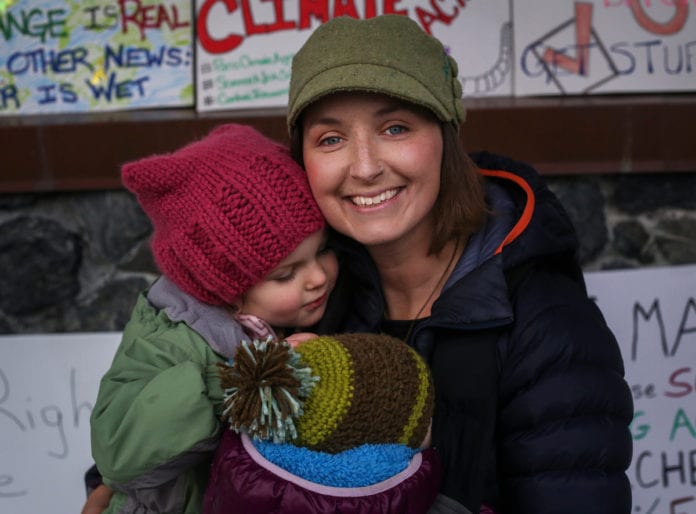
By Erica Thompson Clark
For The Cordova Times
I sat under the stairs.
All day. For weeks. In 1989 my mom worked as an expeditor with another fisherman’s wife out of a home office on the side of Pillar mountain overlooking my hometown of Kodiak, Alaska. You could see the harbors. You could see the canneries, and you could feel the doom. I was four years old. Almost five. And I sat under the stairs, day in and day out after my morning preschool was over.
Sometimes I got picked up for playdates. But most of the time I played under the stairs.
The house we were at, family friends, was home to a teenage girl and her little brother. The little boy wasn’t very friendly, he didn’t share his toys, and he had a reputation for being a bit of a spoiled brat. ‘Bout 6 years later, that same little boy and that same teenage girl lost their father when their boat sank, and all lives were lost to the sea.
But that April, I sat under the stairs day in and day out. I brought my bag of toys. And I listened to my mom rattle off lists of groceries, and boom, and hoses, and tubing and didn’t know what it all meant. All I knew was it was important and it kept her busy. It meant we couldn’t go to the beach. We couldn’t go play at Fort Abercrombie. We weren’t going out to lunch and we weren’t spending casual afternoons drawing or painting or planting seedlings.
Nope, that April I sat under the stairs.
And I sat under the stairs and I listened to my mother and I listened to this other mom, talk about was this would do for our futures, for our fisheries, and what the long-term decimation of a fishery might look like.
So hopeful. That maybe, just maybe it wouldn’t touch our shores, wouldn’t coat our beaches. Like it did Prince William Sound. That it would miss us. That it wouldn’t coat the water’s surface like it did there, smothering a season’s run of herring roe, a fishery they’d both partaken in many years ago.
I sat under the stairs and I listened.
As a young woman I went back to school for a master’s degree. I got one in education and counseling. And I wrote my thesis was how the psychosocial impacts of human-caused technological disasters affect adolescent youth. Because like me there were so many of my generation, and about a half dozen years older, that sat under the stairs, or around the kitchen tables, and watched their parents as the devastation of our fisheries was foreshadowed in the darkness of the oil as it rolled up on the beaches. Many of our families would never recover.
Many families would suffer from depression, alcoholism, or other forms of substance abuse to cope with the loss of a livelihood, the loss of an industry, the loss of a lifestyle. My entire generation would be told go to college, get a degree, don’t rely on fishing. And many of us would. Many of us would leave the fishing industry because our predecessors told us, this was not something to depend on anymore, and because we had witnessed the fallout of a
cataclysmic event in fisheries history. And it would take decades for some to return to our home water. And some never would.
I sat under the stairs, and I listened.
Erica Thompson Clark is from Kodiak, Alaska.














